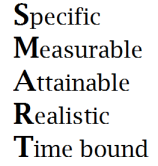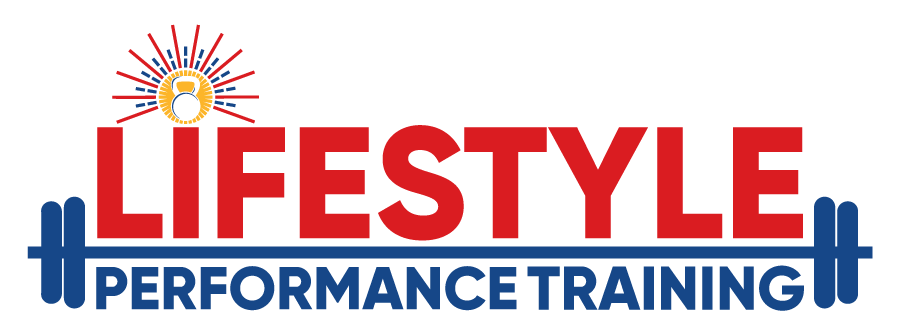The first month of the New year is almost over, and that brings the time that many of us start to question the goals and resolutions we set for ourselves. Before anyone throws in the towel, I would like to offer some thoughts and suggestion that may help.
While big goals are awesome to set and great to motivate and inspire us initially, the distance between where we are now and where we want to be can often be enough to cause that motivation to fizzle and burnout over the long haul. Once you have your big goal set, break it up into smaller incremental goals that can build up to the big one. Being able to achieve your goals more frequently this way can help to build motivation for achieving that big goal rather than burning it out.
 When setting goals, big or small, it is best to follow the SMART format. Each of these components are important to goal setting. Setting specific goals are important to let you and others know exactly what you are going to do. It is important to set some sort of measurable amount to your goal. This allows you to be able to track and measure your level of success. Attainable and realistic are similar but equally important when it comes to goal setting. Any goal that you set for yourself should be both attainable and realistic to pursue, and when it comes to health and wellness the goal should also be able to be maintained. Time bound goals allow you to set expectations for initiating your pursuits and when the goal should be completed. This is important as it keeps us from delaying our pursuit due to no end in sight.
When setting goals, big or small, it is best to follow the SMART format. Each of these components are important to goal setting. Setting specific goals are important to let you and others know exactly what you are going to do. It is important to set some sort of measurable amount to your goal. This allows you to be able to track and measure your level of success. Attainable and realistic are similar but equally important when it comes to goal setting. Any goal that you set for yourself should be both attainable and realistic to pursue, and when it comes to health and wellness the goal should also be able to be maintained. Time bound goals allow you to set expectations for initiating your pursuits and when the goal should be completed. This is important as it keeps us from delaying our pursuit due to no end in sight.
A common mistake that people make when setting goals are setting what I call out come goals. The most common example of this are weight loss goals. I have seen many people stop all the great things there were doing for their overall health due to what that number on the scale said. This is the issue with outcome goals. We often miss the forest for the trees with our focus and let the end justify the means. This focus often leads to choices that are unsustainable once the desired outcome is achieved. This leads to regressing back to our previous state that caused us to set the goal to begin with. Instead I recommend setting process goals. This focus puts more emphasis on what is going to help you achieve and sustain the desired goal. This focus often is over looked because it requires planning. To set goals around what needs to be done in order to best achieve an outcome, you must identify first what is needed, then proceed with obtaining everything needed to follow through with the plan. Once this is done you must set up a plan of implementation for your incremental goals to achieve the main goal. This will best allow you to not only achieve your main goal, but also create a lifestyle that supports maintaining that goal as well.
Other issues in pursuing goals that I often see are over emphasizing everything you are doing right and wondering why you are not seeing results or emphasizing everything you are doing wrong and not realizing the success you have made. Either of these misbalanced viewpoints can lead to frustration and ending your goal pursuits. It is important to balance your focus between mistakes and successes. Mistakes or even “failures” in a pursuit are important to address, but this should be done from a learning standpoint. Instead of viewing them as mistakes or “failures” they should be viewed as a learning opportunity. If you made a learning opportunity, take a moment to identify what happened that caused it to go wrong and then identify what could be done next time to generate a better outcome. Once you’ve identified how you can improve, move forward and release the learning opportunity, don’t dwell on it.
While it is good to accentuate positive steps forward, if you are not seeing the results you want, it may be time to take a moment to look at either what you’re not doing but should be or what your are still doing but should not continue. When we are already making great changes in our lifestyle we often ignore those last few things that need to change. If you are not sure what needs to be changed or addressed then it is a good time to seek out a professional that works in that area. Whether it be a personal trainer for you exercise program, a nutritionist for your diet or another profession that correlates with your needs, get that professional insight before your motivation is gone.

